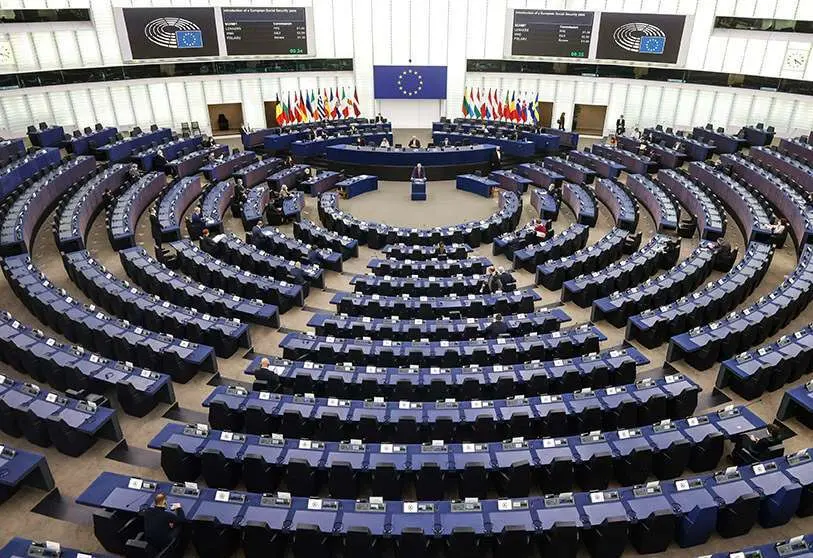Revolutionary climate

The European continent is in a frosty mood, only this time it is not the citizens who are rebelling against the monarch, but the member states themselves who seem to be preparing for an internal dispute within a European Union that is afflicted and lacking the resources to deal with the crisis. Fortunately, we cannot yet speak of a rebellion against Brussels, as the aberrations adopted by Poland and Hungary have not yet spread to the rest of the Union. What is clear, however, is that not only does the pandemic bring out the hidden national interests of each state, but that each crisis facing the European Union serves as a showcase for third parties of the Union's weaknesses. Macron's use of the EU presidency to campaign for his presidential election, as well as Germany's ambivalent stance on Russia at present, are clear examples of this.
This suggests that the chances of the EU emerging stronger from this crisis are slim, even though this should be the natural course of events. This crisis reveals a paradox that is a product of the esotericism of Western democracies. We see that the message coming from Moscow is clear and resounding, we see a Vladimir Putin who has made his position clear: NATO's rapprochement with a country like Ukraine is unacceptable for Russian interests. Meanwhile, on European soil the messages are contradictory: there is talk of sanctions and dire consequences for the Russian economy - as if this were the only thing that mattered - but they remain nothing more than that, empty threats, because Russian troops have not been demobilised from the border.
The question is, if we have known since December that Russia is sending troops to the border and that there is a possible risk of invasion, what reasons can we give to explain why the US and the EU are still meeting to discuss possible sanctions in the event of a Russian invasion of Ukraine? Is this part of a crisis management strategy, or is there really nothing agreed? It is true that the US has spoken out by withdrawing Russian banks from the ZWIFT system or through restrictions on technology products, as was the case with Huawei at the time. But at the same time, the United States is in a privileged position due to its geographical distance and energy independence, which would not be enough to counteract a cut in Russian gas supplies, no matter how many ships and reserves are made available to Europe.
Moreover, the international scenario has changed, and just as China developed its own operating system in the wake of US sanctions, Russia could turn to other markets to make up for the shortfalls produced by transatlantic sanctions. If China, Russia and Iran have this week conducted joint manoeuvres in the Gulf of Oman, there is nothing to stop them from starting to collaborate with each other in other dimensions to withstand the sanctions that the US-NATO-EU triad might impose. The Western triad is in crisis within two of its poles. All this is not new, but its effects appear in times of greatest need.
The dissent in NATO and the European Union is arguably led by Germany's position on Russia. Germany, because of its past and the new role it wants to play in international politics, has been characterised by a firm stance in support of non-proliferation and disarmament. It has progressively shut down its nuclear power plants - currently only three remain and it remains to be seen whether a sudden cut in Russian gas supplies will cause their closure to be prolonged - and has opposed arms shipments to Ukraine. It even denied access to German airspace to a British army plane carrying arms to Ukraine. But the main problem plaguing the EU and NATO is not that Germany is adopting an ambiguous stance towards the 'logical' interests of its allies, but that there is no consensus within Europe's leading power on how to deal with this crisis, as we have seen with the dismissal of the German navy commander who considered Russia a natural ally.
All this leads to the conclusion that what happens on European soil must be handled by Europe and not by third parties. In the unlikely - though not impossible - eventual high-intensity conflict in Ukraine, how would a new wave of refugees, Europe's Achilles' heel, be dealt with? There is no longer another Turkey to provide funding to act as a buffer. While Putin waits and demands, European leaders remain mired in talks on the uncertain future of Ukraine and Europe. This is not to praise Russian unilateralism, but to consider that some of the EU's and NATO's decision-making mechanisms, while democratic, become real obstacles to our own interests.

